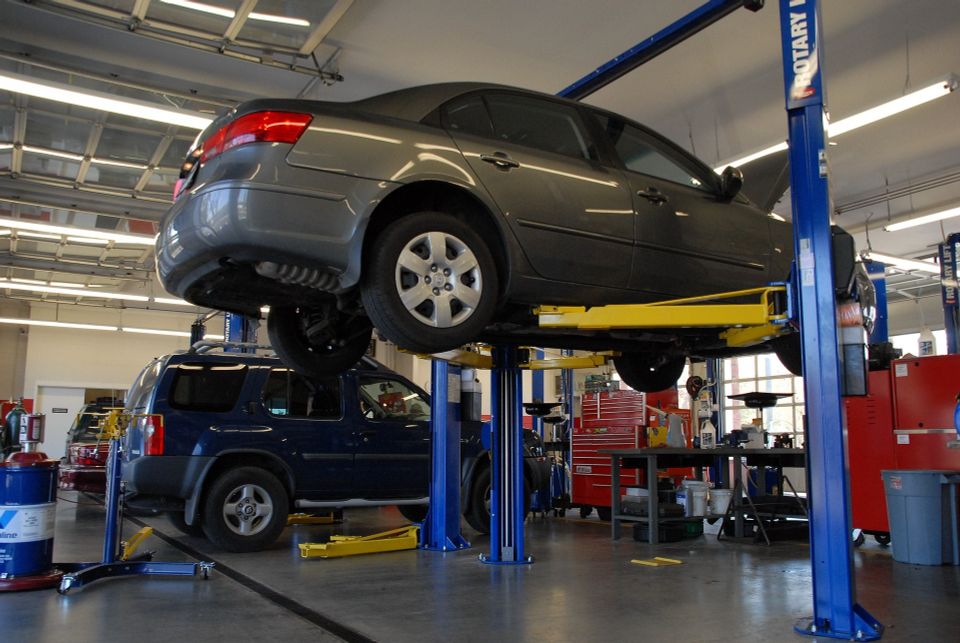
Top 10 Signs Your Car Needs Immediate Attention from a Mechanic
Owning a car comes with the responsibility of regular maintenance and being aware of any signs that indicate something might be wrong. Ignoring these signs can lead to more significant problems down the road, potentially putting you and your passengers at risk. Here are the top 10 signs that your car needs immediate attention from a mechanic:
1. Strange Noises
Hearing unusual sounds while driving? It could be a sign of trouble. Squealing or grinding when you brake might indicate worn-out brake pads, while knocking sounds from the engine could signal internal damage. Whining, clunking, or rattling noises can all suggest various issues that require a professional diagnosis.
2. Warning Lights on the Dashboard
Your car's dashboard is equipped with various warning lights designed to alert you to potential problems. The check engine light, oil pressure warning, and battery alert are just a few examples. If any warning light comes on and stays illuminated, it's a sign that you should have your car checked out as soon as possible.
3. Unusual Vibrations
Feeling vibrations through the steering wheel, floor, or seats can be alarming. These vibrations might be caused by unbalanced tires, warped brake rotors, or even problems with the suspension system. Ignoring vibrations can lead to more significant damage and higher repair costs.
4. Fluid Leaks
Leaking fluids are never a good sign. Whether it's oil, coolant, transmission fluid, or brake fluid, any puddle under your car can indicate a serious issue. If you notice any colored fluid on your driveway or garage floor, contact a mechanic right away to diagnose and fix the leak.
5. Burning Smells
A burning smell is a clear indication that something is wrong. It could be the smell of burning rubber, oil, or even electrical components. These smells are often associated with serious issues like overheating engines, oil leaks onto hot surfaces, or electrical shorts. Don't ignore any burning odors coming from your car.
6. Smoke or Steam
Seeing smoke or steam coming from your car is a definite cause for concern. Smoke from the exhaust could indicate an engine problem, while steam from under the hood often points to a coolant leak or overheating issue. Both situations require immediate attention to prevent further damage.
7. Trouble Starting the Car
If your car has difficulty starting, it might be a sign of a failing battery, starter, or alternator. While a dead battery is the most common cause, repeated issues with starting your car should prompt a visit to a mechanic for a thorough inspection.
8. Poor Braking Performance
Your brakes are one of the most critical safety features of your car. If you notice that your car takes longer to stop, or if the brake pedal feels soft or spongy, it could indicate a brake fluid leak or worn-out brake pads. In any case, a mechanic should address brake issues immediately to ensure your safety.
9. Decreased Fuel Efficiency
A sudden drop in fuel efficiency can be a sign of various problems, from a clogged air filter to engine issues. If you're filling up your tank more often than usual, it might be time to have your car checked out by a professional.
10. Pulling to One Side
If your car pulls to one side while driving or braking, it could indicate an alignment issue, uneven tire pressure, or problems with the braking system. Driving with a misaligned car can cause uneven tire wear and make your car harder to control, so it's essential to have this checked out as soon as possible.
Conclusion
Regular maintenance and being aware of these warning signs can save you from expensive repairs and ensure your safety on the road. If you notice any of these signs, don't wait—contact a qualified mechanic to diagnose and fix the problem. As a mobile mechanic, we can come to you, making it convenient and easy to get your car back in top shape without the hassle of visiting a traditional auto shop.
Remember, it's always better to address car problems early rather than wait for them to become more serious. Stay safe, and happy driving!
1. Strange Noises
Hearing unusual sounds while driving? It could be a sign of trouble. Squealing or grinding when you brake might indicate worn-out brake pads, while knocking sounds from the engine could signal internal damage. Whining, clunking, or rattling noises can all suggest various issues that require a professional diagnosis.
2. Warning Lights on the Dashboard
Your car's dashboard is equipped with various warning lights designed to alert you to potential problems. The check engine light, oil pressure warning, and battery alert are just a few examples. If any warning light comes on and stays illuminated, it's a sign that you should have your car checked out as soon as possible.
3. Unusual Vibrations
Feeling vibrations through the steering wheel, floor, or seats can be alarming. These vibrations might be caused by unbalanced tires, warped brake rotors, or even problems with the suspension system. Ignoring vibrations can lead to more significant damage and higher repair costs.
4. Fluid Leaks
Leaking fluids are never a good sign. Whether it's oil, coolant, transmission fluid, or brake fluid, any puddle under your car can indicate a serious issue. If you notice any colored fluid on your driveway or garage floor, contact a mechanic right away to diagnose and fix the leak.
5. Burning Smells
A burning smell is a clear indication that something is wrong. It could be the smell of burning rubber, oil, or even electrical components. These smells are often associated with serious issues like overheating engines, oil leaks onto hot surfaces, or electrical shorts. Don't ignore any burning odors coming from your car.
6. Smoke or Steam
Seeing smoke or steam coming from your car is a definite cause for concern. Smoke from the exhaust could indicate an engine problem, while steam from under the hood often points to a coolant leak or overheating issue. Both situations require immediate attention to prevent further damage.
7. Trouble Starting the Car
If your car has difficulty starting, it might be a sign of a failing battery, starter, or alternator. While a dead battery is the most common cause, repeated issues with starting your car should prompt a visit to a mechanic for a thorough inspection.
8. Poor Braking Performance
Your brakes are one of the most critical safety features of your car. If you notice that your car takes longer to stop, or if the brake pedal feels soft or spongy, it could indicate a brake fluid leak or worn-out brake pads. In any case, a mechanic should address brake issues immediately to ensure your safety.
9. Decreased Fuel Efficiency
A sudden drop in fuel efficiency can be a sign of various problems, from a clogged air filter to engine issues. If you're filling up your tank more often than usual, it might be time to have your car checked out by a professional.
10. Pulling to One Side
If your car pulls to one side while driving or braking, it could indicate an alignment issue, uneven tire pressure, or problems with the braking system. Driving with a misaligned car can cause uneven tire wear and make your car harder to control, so it's essential to have this checked out as soon as possible.
Conclusion
Regular maintenance and being aware of these warning signs can save you from expensive repairs and ensure your safety on the road. If you notice any of these signs, don't wait—contact a qualified mechanic to diagnose and fix the problem. As a mobile mechanic, we can come to you, making it convenient and easy to get your car back in top shape without the hassle of visiting a traditional auto shop.
Remember, it's always better to address car problems early rather than wait for them to become more serious. Stay safe, and happy driving!

